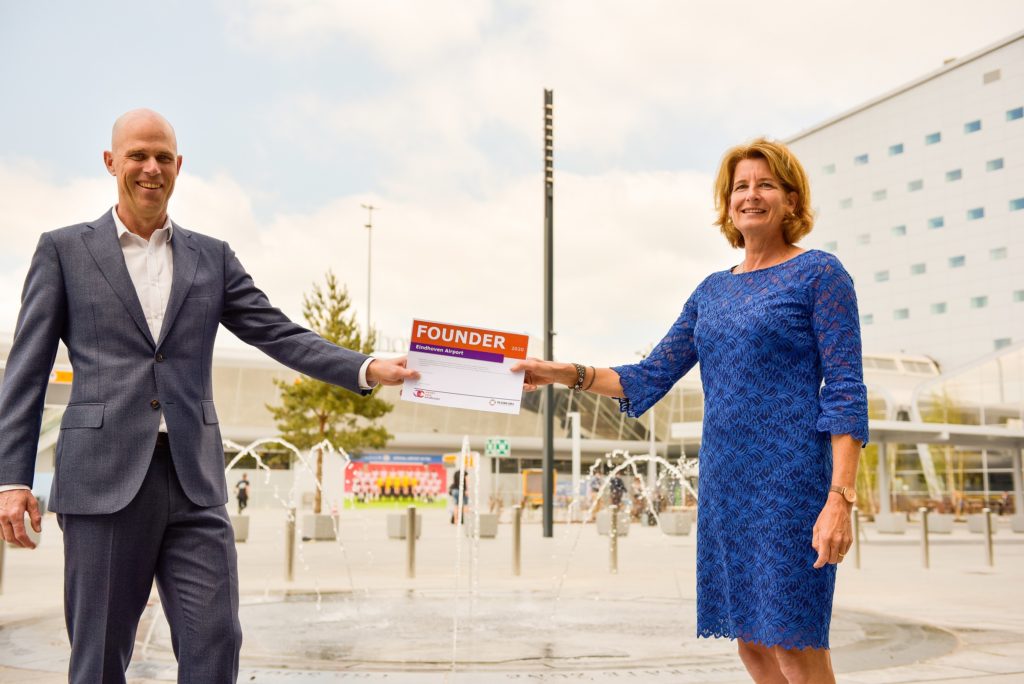
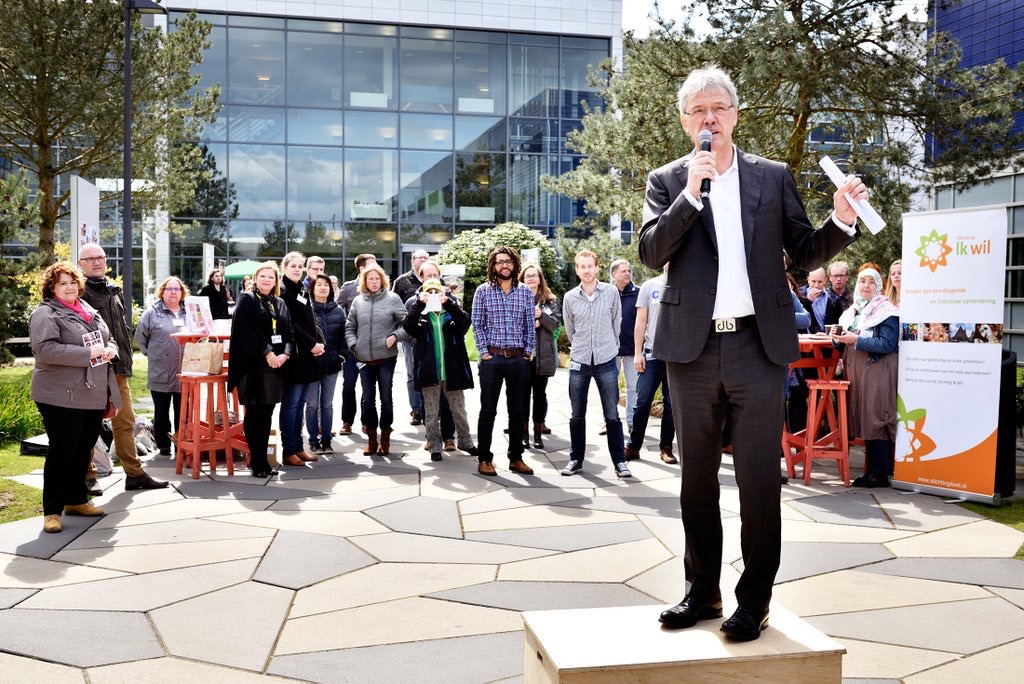
Why CSR is indispensable in any HR strategy
HR and CSR have more in common than you might think. Just think; both disciplines represent the human aspect of the organisation. In addition, they also have a similar challenge. Both HR departments and CSR managers are often faced with the perception that they are 'not strategic enough'.
This is, of course, a misunderstanding. For every organisation, attracting and retaining the right people is of vital importance. And CSR has long ceased to be a compulsory chapter of an annual report; an organisation without a clear sense of purpose and social contribution hardly has a right to exist. Or at least it is increasingly difficult to find new customers and employees.
But there is also good news: a CSR strategy and an HR strategy can reinforce each other. Esther Hofstede would know. As founder and director of Samen voor Eindhoven (Together for Eindhoven), she regularly advises companies in this field.
When do companies seek your advice?
"Fortunately, companies are finding CSR increasingly important, but in practice I see that they sometimes find it difficult to make the right choices. They know: we have to do something with this, but when it comes down to it, the business case and the impact are not seen enough."
"Another difficulty is that CSR is often the responsibility of a department that also has to deal with other things, which they feel are a bit more of a priority. We often see this in HR. That department is already busy, with the task of attracting talent, creating a good employer proposition, and also ensuring that people in the organisation are vital and happy."
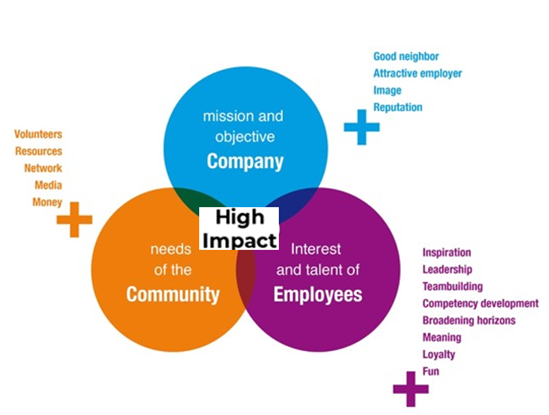
So how do you approach such advice?
"What I start with is actually a simple model. If you want CSR to make an impact, you start by looking at three things: the purpose of your organisation, the needs of the community and the interests and talents of employees. In the overlap between these three areas, that's where the projects that can make a big impact are found."
Can you give an example?
"Something that happened years ago and that has always stayed with me is a situation we had at DLL. A group of management trainees had started there and part of the introduction programme was an activity with homeless people on the Vestdijk in Eindhoven. When the two groups met, it turned out that one of the trainees and a homeless person knew each other from the past, they had been at school together."
"That immediately released so much; that as a talent in the business world you are suddenly face to face with someone who had the same start as you, but has been less fortunate in life. That made the whole team-building activity incredibly valuable, for the whole group."
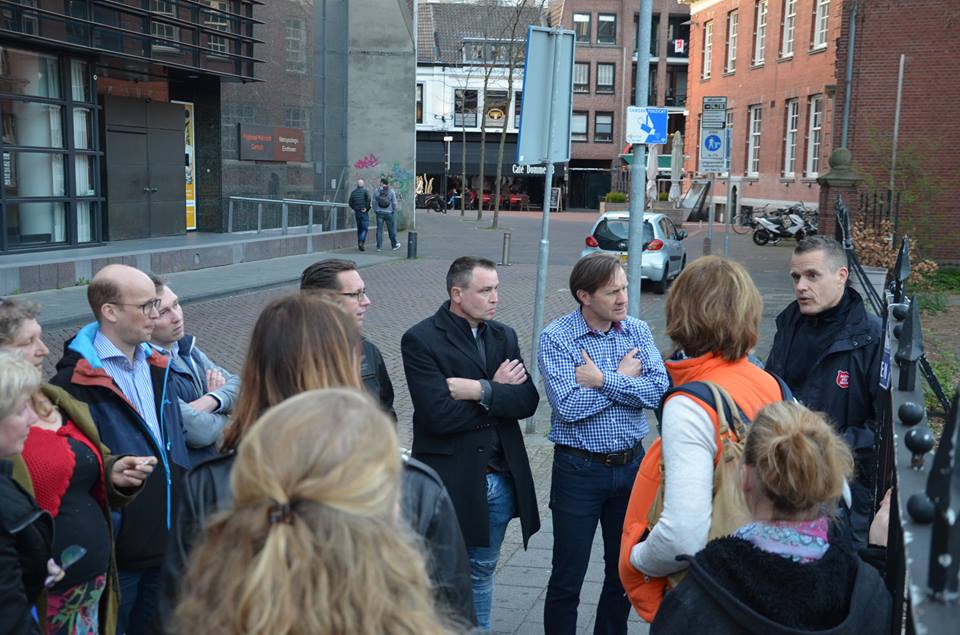
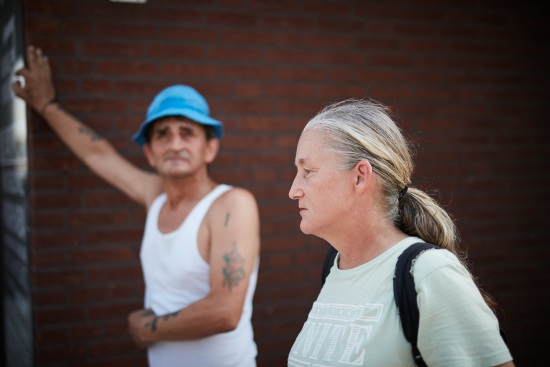
Do you see a role for CSR in the induction of new staff?
"No, certainly not only in that phase. The beauty of it is that this kind of corporate volunteering projects can actually be deployed in all phases of what is also called the 'employee journey'. When it comes to attracting staff, it is extremely important that you can show that doing something good for the world is in your organisation's DNA. At DLL, we saw that CSR can help in onboarding, not only for team building, but also to teach new employees the core values of your organisation - such as working together, connecting, being open to other worlds."
"We see that corporate volunteering, if done well, can also connect colleagues who may have worked together for some time. We often start a volunteer day with a conversation, and ask what personal connection the participants have with the Global Goals. And then you learn that one colleague is quite concerned about the plastic soup, and another colleague spends her free time working hard for animal rights. That connects us enormously, because everyone has a goal that is close to his or her heart, and if you know that about each other, it strengthens the group feeling.

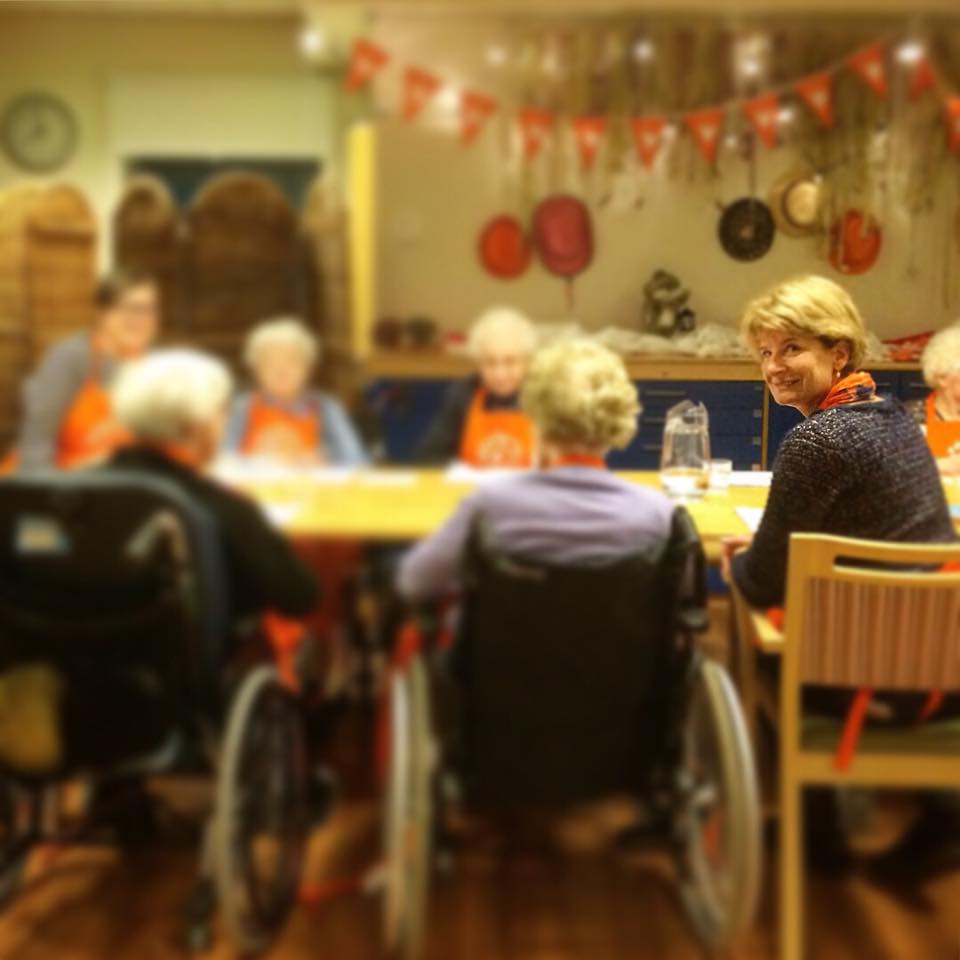
Do you think CSR can also play a role in retaining staff?
"Research has shown that 92 percent of all Dutch people consider it important that an employer should take social responsibility. Hans de Jong, president of Philips Netherlands, also mentioned this in a recent interview: "companies must take co-responsibility for the welfare of society, they can build a bridge to society through public-private partnerships." Frits Philips already said in 1963: "Anyone who wants to be an entrepreneur without social awareness is doomed to fail".
Perhaps that is more important now than ever, in a society in which the differences between people seem to be widening all the time. The gap between higher and lower educated people is large, and misunderstandings are increasing. Of all the people who take part in a volunteer project via Samen voor Eindhoven, 84 percent say that they have gained more understanding for the people with whom they worked."
This is an effect of CSR that you might not even come across in a strategy.
"That is true, and in our eyes that is actually the most valuable thing. As a volunteer, you don't just give something for a day, you may even get more in return than you gave. It gives positive energy, it puts things into perspective enormously because you are dealing with someone who is less fortunate than you."
"When it comes to meaning, there's really very little that can compete with that."
Freek Janssen is content strategist at Philips and community coach of Samen voor Eindhoven. In this coaching programme, professionals from the business world are paired with a social organisation as sparring partners.
Philips has been a partner of Samen voor Eindhoven for many years; every year, all Philips colleagues are given a day to do volunteer work. Samen voor Eindhoven links Philips employees to volunteer projects in the Brainport Eindhoven region.
